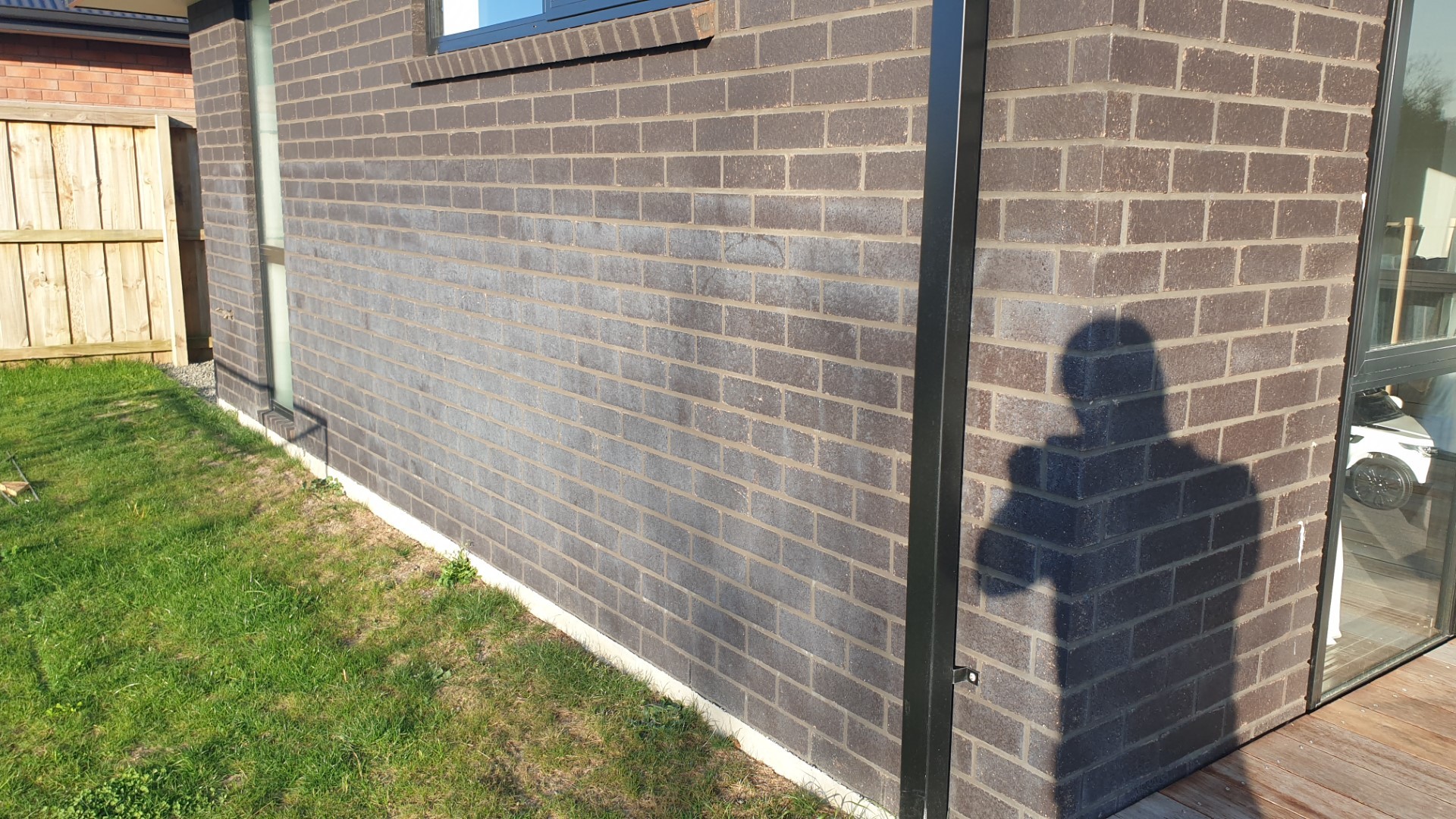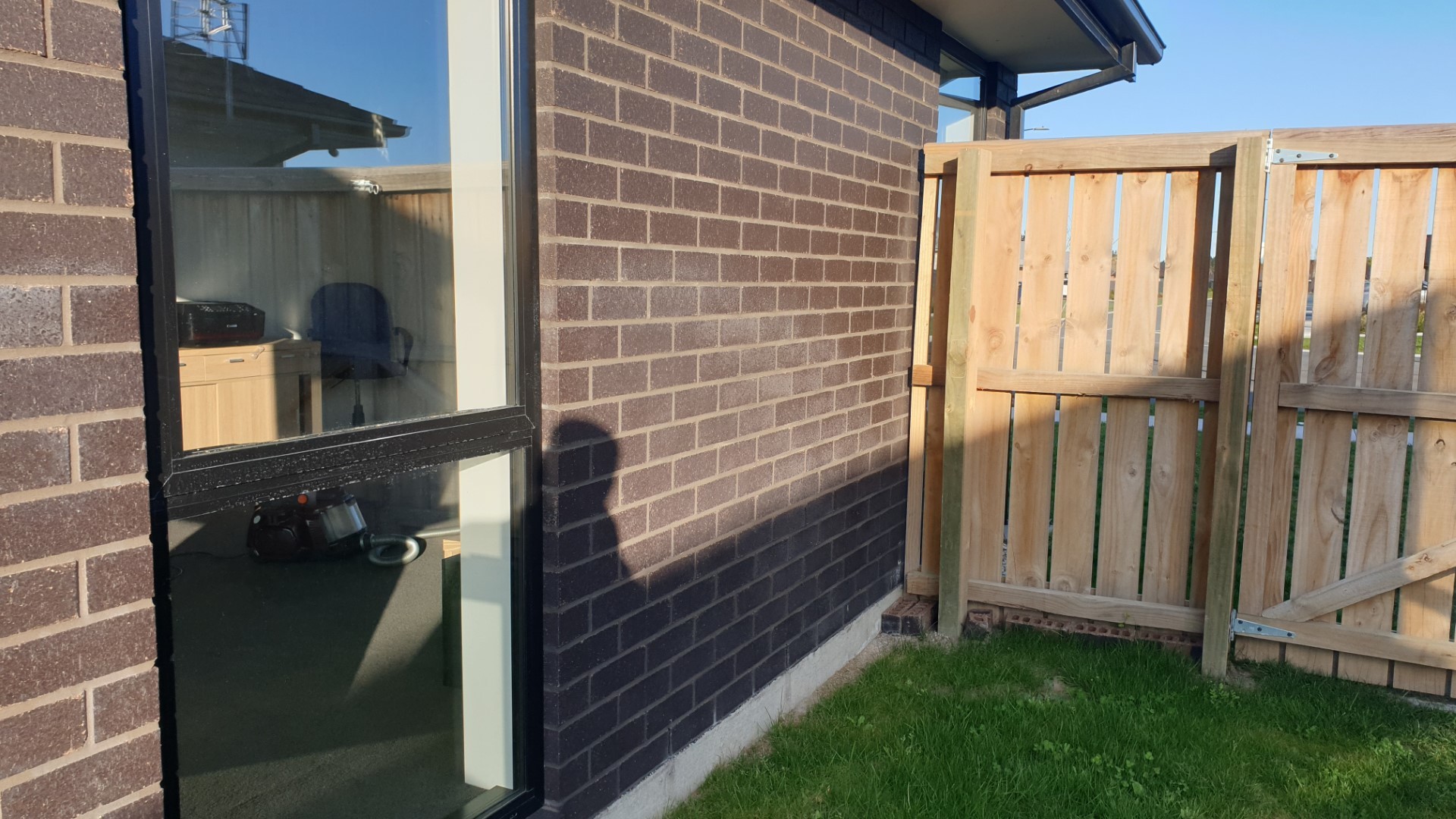Are these grey concrete bricks, rather than actual fired bricks? It is hard to tell from the photo. But if concrete, then these is common with concrete block, and it is apparently salts leaching from the concrete and is possibly due to moisture moving through the concrete..




